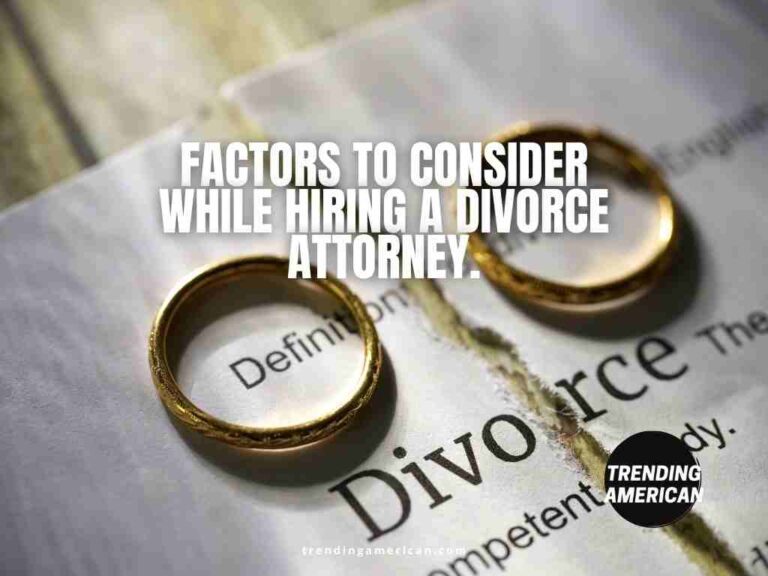What You Need to Know About Misdemeanors
Misdemeanors, occupying the middle ground between minor infractions and serious felonies, constitute a crucial component of the legal landscape, significantly influencing the lives of those involved. As offenses fall between more minor infractions and severe felonies, misdemeanors carry unique consequences and considerations. This comprehensive guide aims to unravel the intricacies surrounding misdemeanors, offering insights into their definitions, classifications, penalties, and their impact on diverse aspects of individuals’ lives.

Defining Misdemeanors:
Misdemeanors, broadly defined, encompass a spectrum of offenses ranging from petty theft to disorderly conduct. These are offenses deemed less severe than felonies but more significant than infractions, often resulting in a maximum jail sentence of less than one year. Examples include simple assault, petty theft, and certain drug-related offenses. The fluidity in the definition underscores the importance of understanding the specific nature of each offense and its potential legal ramifications.
Categories of Misdemeanors:
Misdemeanors are typically categorized into classes or degrees based on their severity, each corresponding to different penalties. Class A misdemeanors, being more serious, often carry higher fines or longer jail sentences compared to Class C misdemeanors, which involve less severe infractions. The nuances in categorization serve as a crucial tool for legal professionals and individuals navigating the legal system, aiding in the determination of appropriate consequences for specific offenses.
Misdemeanor Penalties:
Penalties for misdemeanors extend beyond incarceration, involving fines, probation, community service, and restitution. The severity of the penalty is intricately tied to the nature and gravity of the committed offense. Additionally, some misdemeanors may result in the suspension of driving privileges or mandatory participation in court-ordered programs designed to rehabilitate offenders. Understanding the potential penalties is essential for individuals facing misdemeanor charges and their legal representatives.
Misdemeanor vs. Felony:
Differentiating between misdemeanors and felonies is paramount in understanding the legal landscape. Misdemeanors, being less severe offenses, carry shorter sentences compared to felonies, which involve more serious crimes and may result in imprisonment exceeding one year. The difference between a felony and misdemeanor lies in the magnitude of the offense and the corresponding legal consequences. This understanding is foundational for individuals navigating the legal system, enabling them to comprehend the gravity of their situation and make informed decisions.
Expungement and Misdemeanors:
For individuals with misdemeanor convictions, the possibility of expungement offers a potential path to a fresh start. Expungement is a legal process that allows individuals to seal or erase their criminal records, providing an opportunity for rehabilitation. Eligibility criteria for expungement vary, but a successful petition can significantly impact future employment prospects and overall quality of life for those with a misdemeanor in their past, emphasizing the importance of exploring this avenue.
Misdemeanors and Employment:
The impact of misdemeanor convictions on employment is a significant consideration for individuals navigating post-conviction life. Many employers conduct background checks, and a criminal record may influence hiring decisions. However, individuals should be aware of their rights, as some jurisdictions have laws limiting the consideration of certain misdemeanor convictions in employment decisions. Proactive measures, such as understanding local regulations and seeking legal advice, are crucial in overcoming potential challenges in the job market.
Legal Representation for Misdemeanors:
The significance of legal representation in misdemeanor cases cannot be overstated. While misdemeanors may seem less severe than felonies, the potential consequences are significant. A skilled attorney can assess the case, negotiate with prosecutors, and provide a robust defense, increasing the likelihood of a favorable outcome. From challenging evidence to exploring plea bargains, legal representation is a crucial element in the misdemeanor legal process, empowering individuals to navigate the complexities of the legal system effectively.
Misdemeanors and Immigration:
For non-U.S. citizens, misdemeanor convictions can have far-reaching immigration consequences. Depending on the nature of the offense, individuals may face deportation, denial of entry, or other immigration-related issues. The intersection of criminal and immigration law requires specialized knowledge, underscoring the importance of seeking legal advice. Navigating these complex circumstances necessitates a comprehensive understanding of both criminal and immigration laws to make informed decisions that can profoundly impact an individual’s immigration status and future.
Understanding Misdemeanor Sentencing:
Misdemeanor sentencing varies widely, influenced by factors such as the specific offense, the defendant’s criminal history, and jurisdictional regulations. Unlike felonies with predetermined sentences, misdemeanor sentencing allows for more discretion, enabling judges to consider individual circumstances. This discretion can result in alternatives to traditional incarceration, such as probation, community service, or educational programs. Recognizing the flexibility in misdemeanor sentencing is crucial for both defendants and legal professionals, as it allows for tailored approaches that address the unique aspects of each case.
Common Legal Defenses for Misdemeanors:
Legal defenses play a pivotal role in misdemeanor cases, offering defendants avenues to challenge charges or seek reduced penalties. Common defenses include lack of intent, mistaken identity, unlawful search and seizure, and procedural errors during arrest. A robust understanding of applicable legal defenses empowers individuals and their legal representatives to build effective strategies for their cases. From challenging evidence admissibility to questioning the credibility of witnesses, exploring legal defenses is a vital aspect of mounting a successful misdemeanor defense.
The Impact of Misdemeanors on Civil Liberties:
Misdemeanor convictions can have lasting implications for civil liberties, extending beyond immediate legal consequences. For instance, some convictions may restrict an individual’s right to bear arms or limit voting rights. Understanding these collateral consequences is essential for those facing misdemeanor charges, as it allows them to make informed decisions about potential long-term implications. Additionally, advocacy for criminal justice reform often centers on addressing the disproportionate impact of misdemeanor convictions on marginalized communities, highlighting the broader societal implications of misdemeanor offenses.
In essence, navigating the complexities of misdemeanors requires a multifaceted understanding encompassing definitions, classifications, penalties, and broader consequences. From the intricacies of sentencing to the importance of legal defenses and the impact on civil liberties, misdemeanors shape legal landscapes and influence the lives of countless individuals. Recognizing the flexibility in sentencing, exploring viable legal defenses, and understanding the collateral consequences on civil liberties contribute to a more nuanced comprehension of misdemeanor charges.
As we conclude this exploration, it is evident that misdemeanors are not isolated incidents but interconnected threads within the broader fabric of the legal system. Each aspect, from sentencing considerations to potential defenses, adds layers to the intricate tapestry of misdemeanor law. By being aware of these intricacies, individuals can better navigate the legal terrain, making informed decisions and actively participating in the shaping of a fair and just legal system. Ultimately, understanding misdemeanors is not just about legal technicalities; it’s about empowering individuals to navigate, challenge, and reform a system that impacts lives in profound ways.







